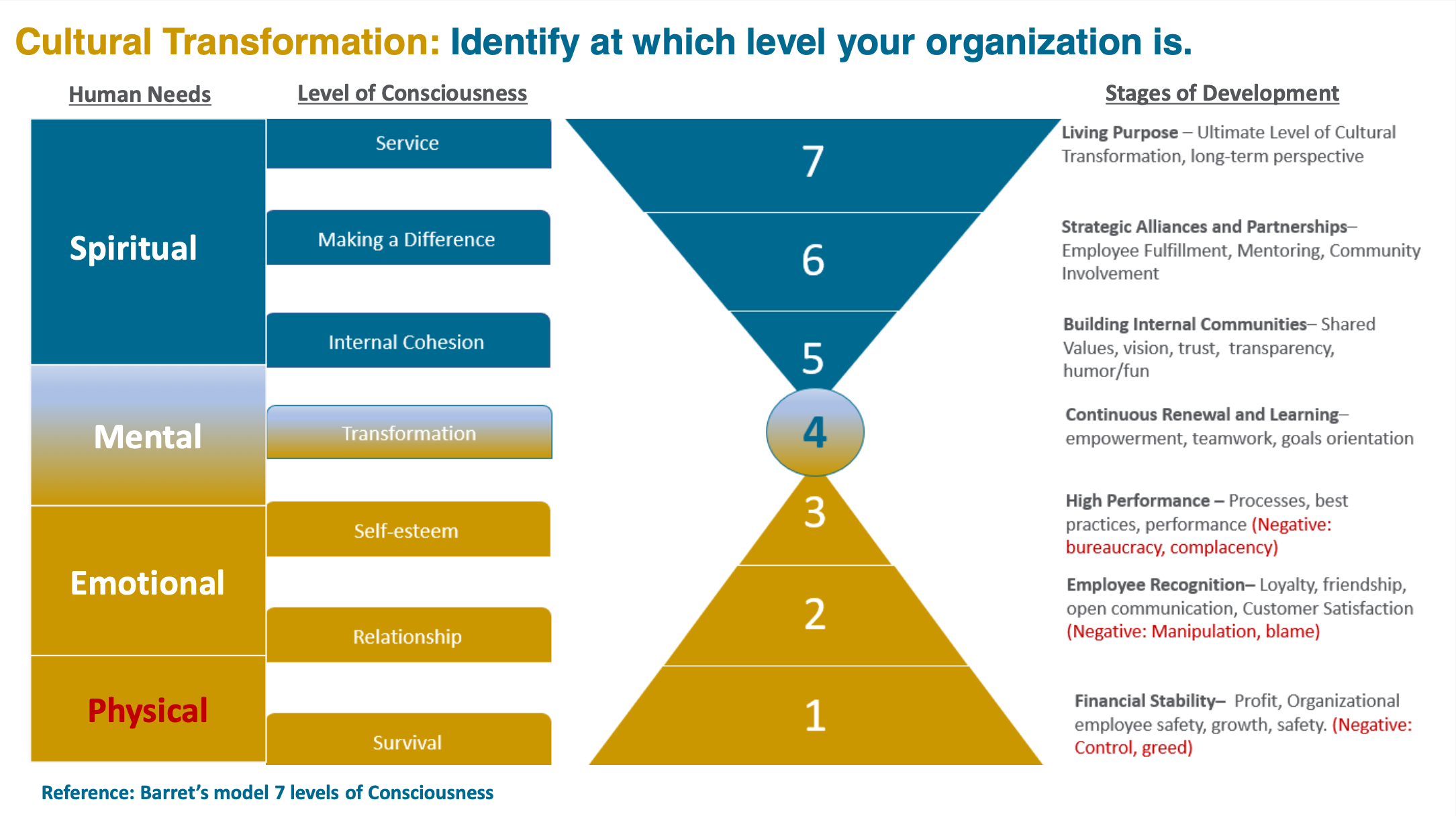When we talk about cultural transformation in organizations, there is no doubt that leaders and employees (together and separately) play a big role in creating a healthy culture.
In this article, I will discuss my experience and research. Everything I write is based on situations or challenges I face with the commitment to be a better human and help others.
This sensitive topic is real among many teams, organizations, and relationships. I know people are facing mental issues because of an unhealthy culture that leaders allow, and employees are not taking ownership of their own behaviors.
More than anything, my words don’t come from a place of being a victim but from a place of being a part of unhealthy situations. I am grateful to have faced this because now I can be an agent of change in people’s lives.
So, let me cut to the chase:
I want to challenge you about what it means BEING A FALSE PEACEMAKER and how this can be toxic in relationships, in your own life, and in an organization; it can impact results
In a nutshell, a false peacemaker is someone or a group that avoids conflict at any price.
Let’s be honest; nobody likes conflict. Yet conflict is unavoidable. From a simple team meeting, among the highest level of the executive board meeting, to a husband and wife relationship, conflicts can happen even during a Thanksgiving family meal over how someone slices the turkey.
But one of the most destructive myths people believes (or want to believe) is that smoothing over disagreements or “sweeping them under the carpet” is the normal thing to do to be “professional” or “spiritual.”
For this reason, and I can tell by my own experience, small groups, communities, and corporations become unhealthy, and as a consequence, financial results are impacted by this unhealthy culture.
Very few leaders are capable or interested in managing conflicts among their teams (honestly, in some cases, they can’t even manage conflicts in their own homes). Most of them bury the tensions, cover up the issues, and move on. Sometimes, the leader thinks that a quick fix can solve the conflict.
But smoothing over conflicts, ignoring them, or applying quick fixes without allowing the truth to emerge can have terrible side effects. So, if you are living in or working in a FALSE PEACEMAKER environment, be honest with yourself to identify some of these side effects in your life:
Side effects of avoiding conflict:
- Saying one thing to people’s faces and then another behind their backs
- Blaming?
- Attacks
- Giving the people the silent treatment
- Become Sarcastic
- Giving in to things because you are afraid of not being liked.
- Send an email full of anger or containing subtle criticism or sarcasm.
- Tell only half-truths for fear of hurting your friend’s feelings.
- Not being able to say ‘no.’
- Avoiding, withdrawing, and cutting off people
- Condescending behaviors toward others (this can be seen especially with men towards women or experienced professionals toward young professionals)
- Anxiety and other mental health issues
The most critical thing about these side effects is how they spread among a team. Each member can develop a side effect or multiple, which will spread to other team members. THIS IS TOXIC!
The most successful leaders don’t smooth over conflicts among their teams. Great ideas arise in the middle of conflicts and different minds.
And let’s not only put this responsibility upon the leader. A mature team member can receive negative feedback from others without the fear of being exposed. He or she can receive feedback from another person and not overreact. Instead, they reflect on it and say: “I am sorry; you are right. “
And they can even take the opportunity to share their side (without gaslighting).
I want to end this article with some examples of false peacemakers, and I want you to ask yourself, Does this sound like you?
Phil disagrees with his coworkers at lunch when they slander another co-worker. He is afraid to speak up – Phil is a false peacemaker.
Vivian is upset about the behavior of her colleague, who is constantly using words like I instead of we during team meetings; she says nothing about it but keeps mentioning it to others – Vivian is a false peacemaker.
Mary is in a meeting listening to another team member express ideas that will make her boss make a wrong decision. She says nothing because she fears expressing a different opinion – Mary is a false peacemaker.
John listens to a friend complaining about a situation with another coworker; John knows his friend is not correct in his assumptions but doesn’t correct him – John is a false peacemaker.
If you were being honest while reading some of these examples, then I am sure you identified with at least one of these scenarios.
The solution for not being a FALSE PEACEMAKER is embracing conflict. Simple right? Well, it is much easier said than doing it.
But let me say something; when I decided to dive deep into this topic, there were two things I had to learn:
- I had to practically explore the root cause of being a false peacemaker (which is what I covered in this article.)
- I had to learn how to embrace conflict. ( I will cover this topic in my next article)
For now, if you liked this content and if what I wrote resonated with you somehow, sign up for my blog, and let’s embrace the journey of being AUTHENTIC PEACEMAKERS together!
Are you in?

Acknowledgments: I need to reference two books that guided me to write this article besides my own experience.
First is the book of life – The Bible – The life of Jesus is a true example of someone unafraid to embrace conflicts, and he confronted leaders and his disciples. As a Christian, I must say diving deep into Jesus’ personality is transformational. If you are not Christian, this article is still practical as it is based on scientific and psychological studies.
The second book is Emotional Healthy Spirituality by Peter Scazzero– A life-changing book that takes you out of your comfort zone. Contact me if you are interested in mentorship or signing up for a book club to study this book.
Blog image: Blessed Are the Peacemakers | Christian Union




